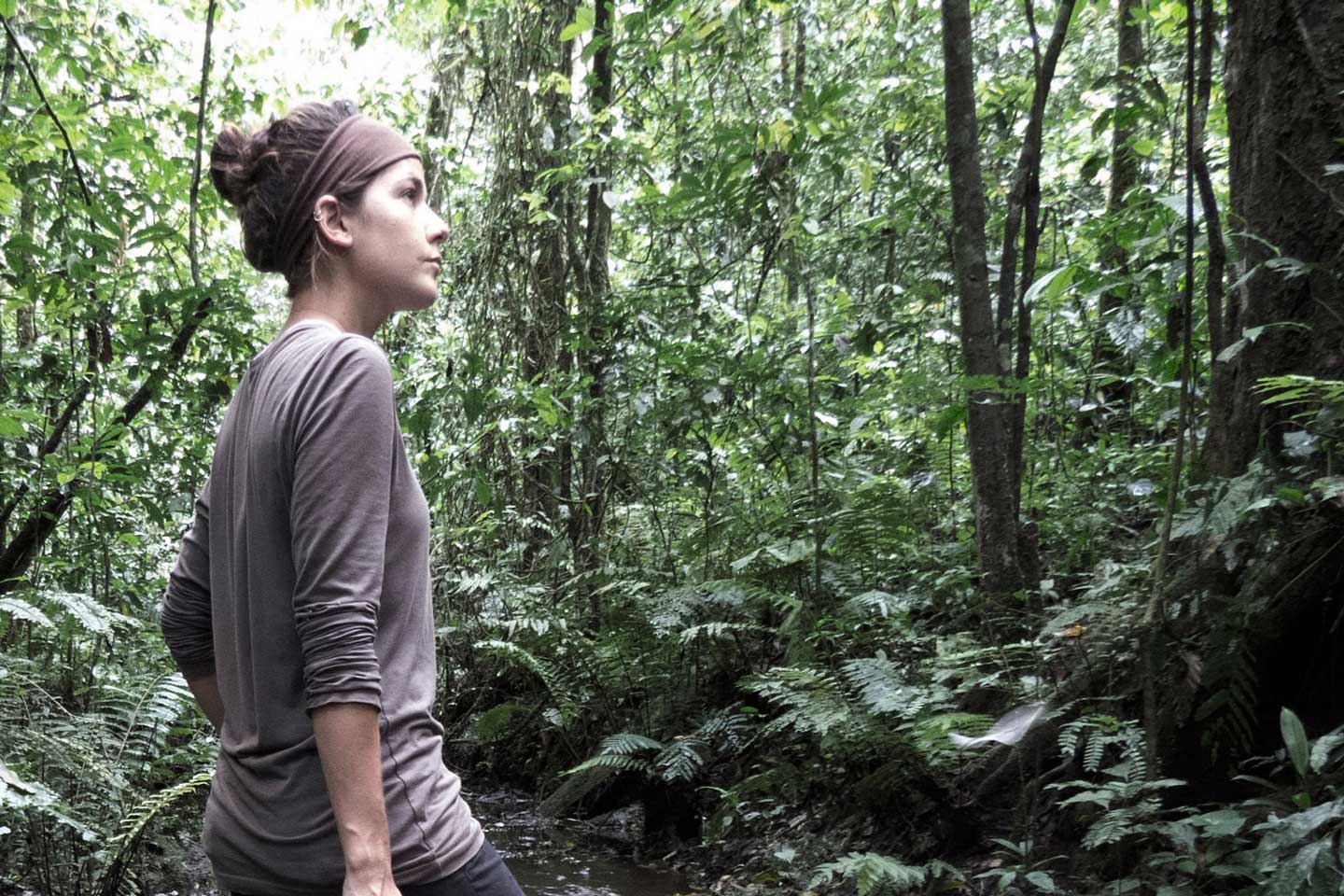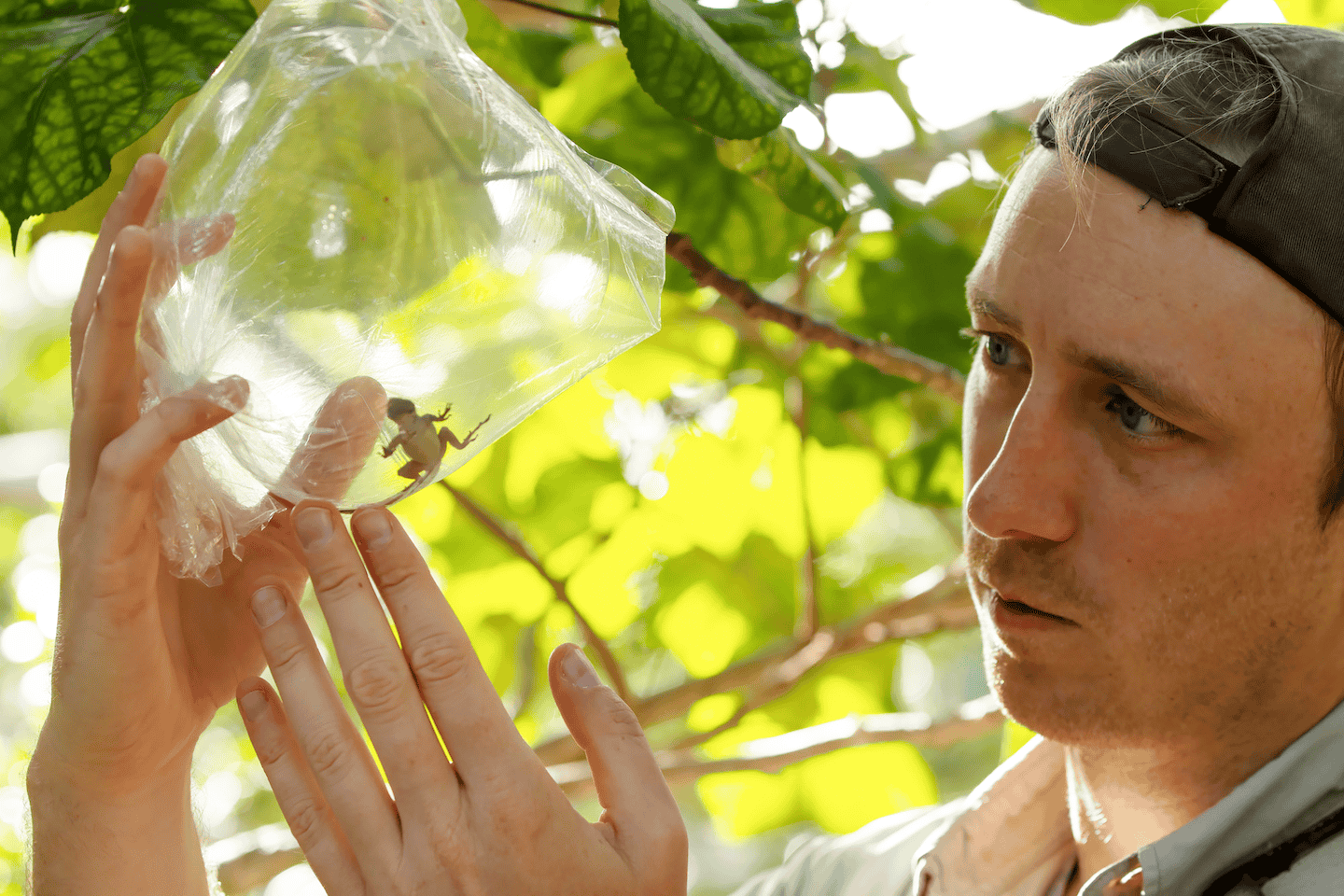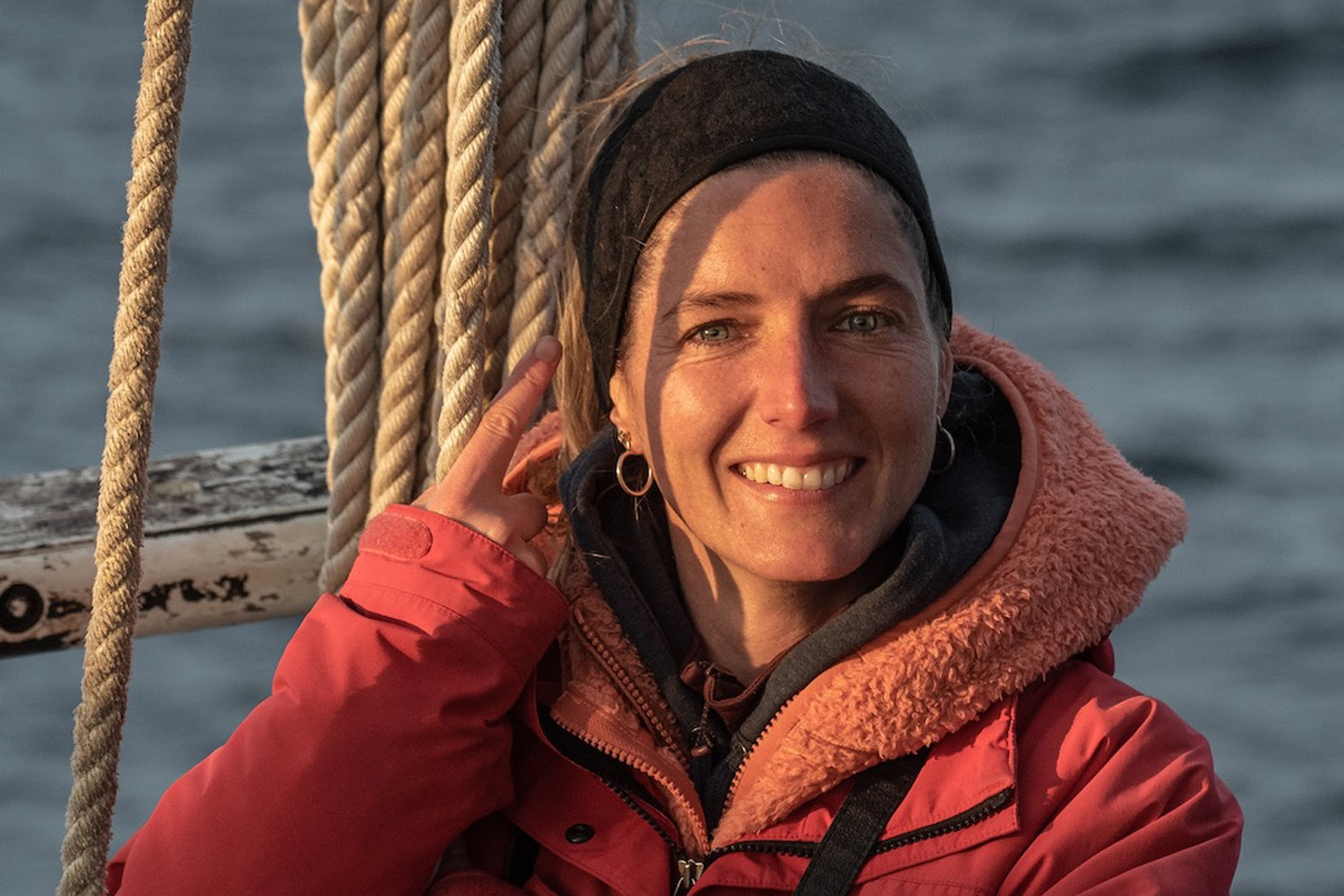Holly Lutz
she/her Evolutionary Biologist Field Museum of Natural History

Holly Lutz’s studies have taken her to Kenya, Liberia, Malawi, Mozambique, Uganda, Honduras and Peru where she has worked in woodlands, dry savannah, rainforests, caves, mines and even outhouses. Working as a field researcher in varied environments, she documents the biodiversity of the largely unseen world of microbes that live as symbionts in close association with mammals, birds, and invertebrates.
Lutz combines natural history collections with state-of-the-art molecular tools to understand the ecology and evolution of microbial symbionts, parasites, pathogens and their interactions with wildlife and human hosts. In honor of her work on parasites, Dr. Jason Weckstein and Michel Valim named the louse Cotingacola lutzae after her, which is found on the Cinerous Mourner bird in the Amazon basin. Lutz focuses on bats as potential vectors of disease, and she specializes in the biogeography of malarial and other related parasites. She has discovered novel viruses – including novel coronaviruses – by examining wildlife that live near human habitats and agriculture.
Lutz is dedicated to helping to build capacity within her study areas, and she works closely with local students and other scientists to document the natural history of these regions. Her research provides a deeper understanding of the interactions between humans, environments and wildlife health.
For more information, visit www.hollylutz.com.
You Might Also Like


